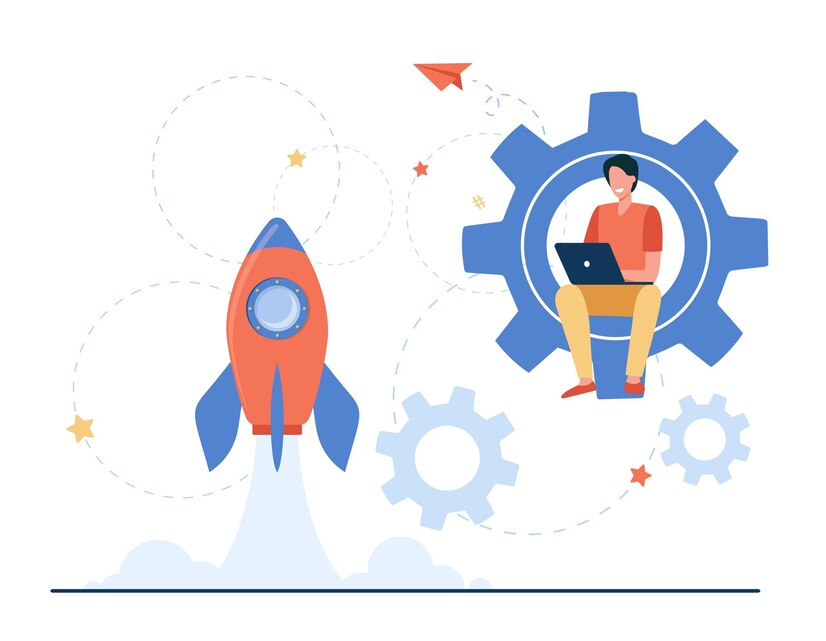For every organization looking to extract meaning from complicated data sets, data visualization is a crucial tool. Accurate data visualization has evolved into a crucial component of contemporary commercial planning in the era of big data and the growing demand for information-driven business choices.
In this article, we will explore a methodical approach to effectively implementing data visualization, which can be attained through the use of consulting firms, data visualization services, and enterprises.
What is Data Visualization?
The process of presenting information and data graphically so that it is easier to grasp and can be evaluated for decision-making is known as data visualization. It puts out several forms of data visualizations, including reports, maps, graphs, and charts, which aid in comprehending and looking into the connections, patterns, and developments among diverse elements. An artistic style with a scientific basis is involved in data visualization so that the audience can understand the data better and find meaningful insights.
Data communication and storytelling are exceptionally improved and upgraded by the data visualization technique in its diverse use of colors, shapes, sizes, and interactivity. By this means, the stakeholders themselves have a chance to glance through the data and make balanced decisions based on the data provided. However, the growth of data-based platforms in operational intelligence, analytics, financial, health, and marketing, as well as other sectors, has made data visualization a must-have for any organization that wants to achieve strategic action development through the use of data. Key features of data visualization are:
1. Expertise:
Access to a team of experienced data visualization experts who know the challenges of the visualization of complex data.
2. Custom Solutions:
Personalized visualizations based on your specific data needs and your business targets.
3. Efficiency:
Intuitive, actionable, and interactive dashboards resulted in more rapid inferences and decisions.
4. Continuous Support:
Continuous support and maintenance to ensure the sustainability and relevancy of the visualizations.
Complete Data Visualization Process for Effective Results
Step 1: Identify Objectives and Purpose
The first step that will be taken to achieve the aim of the visualization of data is determining the purpose of the visualization and the knowledge of the audience. Figure out the main learnings you would like to extract from the data and who will be the end users of the visualizations. These may involve the management, data scientists, marketing groups, and shareholders. Comprehending the user’s proficiency and the particular features they need can assist in determining the design as well as the level of complexity of the visualizations.
Step 2: Data Collection and Cleaning
The high standard of data quality has the most significant impact on data visualization. Focus on gathering data that is not only relevant and up-to-date but reliable as well. Clean the data by removing doubles, fixing mistakes, and dealing with blanks. Data preparation is perhaps the most important step in the visualization process since it sets the stage for meaningful visualizations.
Step 3: Consider Rght Visualization Strategies
The choice of the right data visualization techniques depends on the kind of data you have and the outputs you want to achieve. Common visualization types include:
Bar Charts:
The perfect choice for when you need to analyze the patterns between the categories or explain the tendencies in change.
Line Graphs:
Inevitably suitable for making visual representations of trends and patterns with historical data.
Pie Charts:
Provide for the depiction of ratios and percentages.
Scatter Plots:
Helpful for depicting the connection between variables and shaping data.
Heat Maps:
The best way to show a great volume of data varying from each other.
Working with data visualization professionals or by using data visualization services will allow you to pick the most suitable methods for your precious data and your set goals.
Step 4: Design Engaging, informative, yet Interactive Visualizations
The creation of effective visuals is largely dependent on the design of the visualization. Follow these best practices:
Simplify:
Omit complexity and unnecessary details. Pay special attention to effectively expressing the central theme.
Use Colors Wisely:
Pick a color scheme that supports the figure and forms meaning. Contrast to underline the importance of color.- Add Context: Include labels, titles, and legends to accurately assist the users in the interpretation of the visualizations.
Interactive Elements:
Utilize user-friendly and interactive tools like tooltips, filters, and drill-down features that allow visitors to engage with the data in a deeper manner.
Partnering with a data visualization company encompasses the skill and knowledge of design principles and user experience, which is an essential tool in making beautiful and clear visualizations.
Step 5: Test and Iterate
Prior to the actual finalization of your visualization, have your sample users from the given target audience participate in the testing session. Utilize user interface design and feedback to present all the information in a clear and straightforward manner that meets the users’ expectations. Repeat the design process using the feedback received and refine it to make it more efficient and enhance the user experience.
Step 6: Implement and Monitor
Integrate your completed data visualizations into your operations or reporting systems once they are ready for implementation. Keep an eye on how they work and track their performance over time. Make sure to update the visualizations consistently with the evolving data and changing business demands.
Conclusion
Therefore, for data visualization to be faster and more effective, you can work with a data visualization consulting firm. Such professionals boast an extensive understanding of data visualization methodologies and the latest tools and technologies, as well as knowing what is in vogue in the professional environment. They are in a good position to facilitate that whole journey, first of all by defining the strategy for the stage before the actual implementation of strategies and the subsequent refinement of the strategy and its stages.
To fully utilize the significance of their data, make better decisions based on information, and obtain an edge over competitors in the information-driven world, businesses can leverage data visualization solutions and consulting. In all, this guide will enhance companies’ core competence and knowledge of data visualization.
Tags – data visualization services
Author Bio –
Hetal Mehta
Incorporated in 2014, Ansi ByteCode LLP is a visionary offshore software development company based in Ahmedabad, India. We help clients create custom software solutions through best-in-class software development services and boast a vast network of skilled resources for hire. Contact us today for your unique business requirements; we’ll be delighted to serve you.








